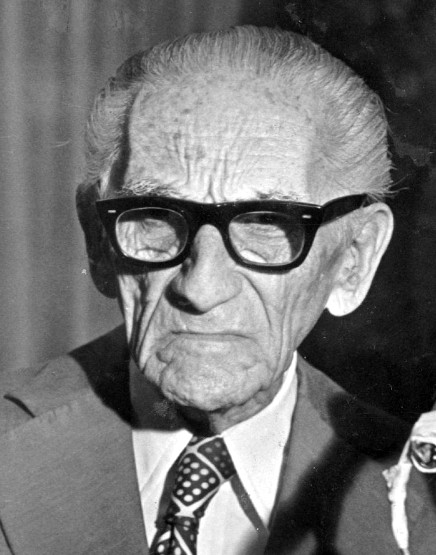Hugo Mayo, pen name of Miguel Augusto Egas Miranda (Manta, November 24, 1895 – Guayaquil, April 5, 1988), was an Ecuadorian avant-garde poet who is referred to as “one of the most influential figures of the 20th century” in the Princeton Encyclopedia of Poetry and Poetics. Although he produced most of his poetry while living in Guayaquil, he published most of his poetry outside of Ecuador, so he was not well known in his native country, but was regarded as one of the best poets of his time in other countries such as Argentina and Peru. El zaguán de aluminio, originally written in 1921 but released in 1982, is perhaps his most famous work. The book was supposed to be published in 1922, but its lone copy was lost or stolen from the publishing house before publication. In the introductory notes of the 1982 version, he wrote: “The true originals of El zaguán de aluminio were destroyed long ago. These lines are what I most recall about those poems. May some hypocritical reader pardon me if I am untrue; they are things of memory, bygone years, and fate.” He was the older brother of the poet José María Egas (1896–1982).
Pen name
In 1921, he chose “Hugo Mayo” as his pen name, and he used it for the rest of his life. He was a huge fan of Victor Hugo, thus the name “Hugo,” and “Mayo,” which stood for May, the European springtime month.
Works
- El regreso (1973)
- Poemas de Hugo Mayo (1976)
- El zaguán de aluminio (1982)
- Chamarasca (1984)
- Colección la rosa de papel (1986)

